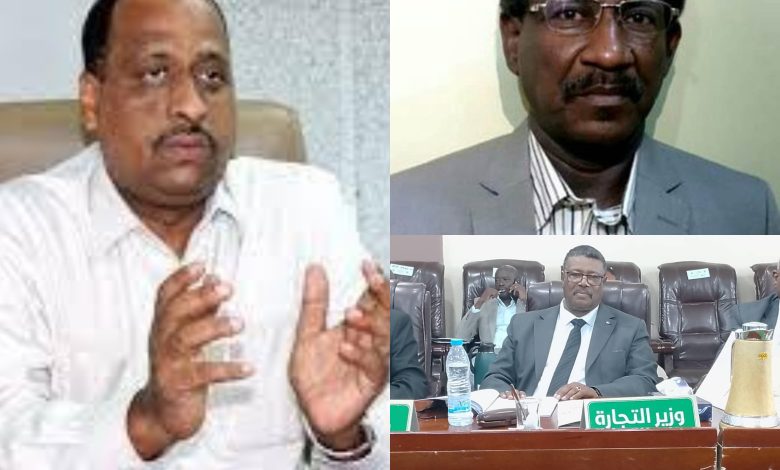Reconstructing the war destruction…how and priorities

Report – Rehab Abdullah
The head of the Sovereignty Council, Lieutenant General Abdel Fattah Al-Burhan, said during testimonies to journalist Mohamed Mohamed Khair that the transitional period will be a founding period during which the country will be reconstructed.
(Al-Ahdath) held talks with experts about how the reconstruction of what was destroyed by the war will take place, and how the necessary resources will be obtained, as well as what are the ideas about the priority of reconstruction, and who is carrying out the task for all the destroyed sectors.
Reconstruction plan
Acting Sudanese Minister of Trade, Al-Fateh Abdullah, confirmed the completion of consultations and meetings to develop a plan and work program for the reconstruction and development of Sudan after the war, indicating during his meeting with the Union of Arab Exporters and Importers that the work is currently underway to write the plan in its final form and set it as a work program during the next phase after the end of the war, at a time when the Union of Arab Exporters and Importers announced through its Secretary General Musaad Abdel Hamid that the Union, headed by Amal Zaki, has completed arrangements for holding an international conference in China to finance multiple projects in the framework for the reconstruction and development of Sudan after the war. In addition to building five thousand housing units within three months and providing mobile hospitals after the approval of the relevant authorities in Sudan and determining the party responsible for following up on these and other projects. He revealed a tendency to take a government delegation to China at the end of this month to examine models of the proposed projects.
Counting the losses
Economist Dr. Muhammad Al-Nayer appreciated the formation of a committee for the reconstruction of Sudan, and he said in his speech to (Al-Ahdath) that forming the committee early could do its job well, but he stressed the necessity of having another committee to count the losses for the Sudanese economy, including the losses of the banking sector, the industrial sector, Commercial, service, and agricultural, both, exports and imports, and the extent to which they were affected by the war, especially production sites, in addition to knowing the impact of the state’s public revenues, and what was looted, as well as what citizens lost in terms of cars, sums of money, etc.
He acknowledged that this committee could not conclude its work until after the end of the war to submit its final report, but he stressed that if it started now, it could account for a large portion of the losses. He stressed that this committee is very important to count the economic losses alongside the committee that sets a complete plan for reconstruction.
Al-Nayer saw the need for all of this to fall under the development of a complete economic vision to reform the Sudanese economy and create a balance in it by targeting economic indicators such as stabilizing the exchange rate, reducing inflation rates, achieving a growth rate and other indicators for which an integrated program is supposed to be developed so that the work of these committees is part of this integrated economic programme.
The implementation
The Dean of the Faculty of Economics at the University of Sudan, the economist Dr. Abdel-Azim, set the deadlines for diverse groups for the reconstruction of Sudan, internally and externally. But Al-Muhal stressed that the problem in Sudan is always that bright ideas are available in abundance, but those who implement these ideas are rare. He pointed out in his interview with Al-Ahdath that for any hundred dollars raised for reconstruction, 90% of it is consumed by corruption and 9% is consumed by mismanagement, and the result the project does not see the light. Al-Mahal stressed the need to address this through complete transparency and involvement of the beneficiary community in all details, complete computerization and involvement of the donor in implementation, as well as choosing competent management for each project, even if the director is of foreign nationality.
He called for preparing well, doing the necessary studies, not relying on bureaucratic state employees, and seeking help from expertise outside Sudan or internal expertise houses through companies specialized in this field.
Al-Mahal saw that the sources of funding are represented by the donors’ conference, international, regional and local organizations, foreign and local voluntary organizations, and he noted the focus on the “bot” system, which has more than ten formulas, adding that brotherly and friendly countries are also considered sources of funding for the reconstruction of Sudan, indicating the possibility of imposing Reconstruction fees on customs, or increasing the value-added tax by 2% for construction, imposing a fee on telecommunications companies, gold or other companies, or granting local or foreign companies plots of land to build housing plans. He warned of the possibility of exploiting funds confiscated from rapid support.
“It is required to form a reconstruction committee for each sector, made up of specialists, not politicians, and involve donors and beneficiaries.” Al-Mahal said.



